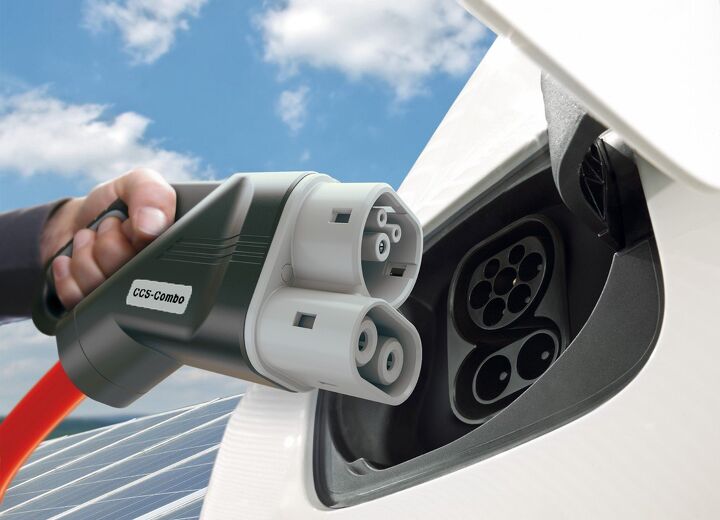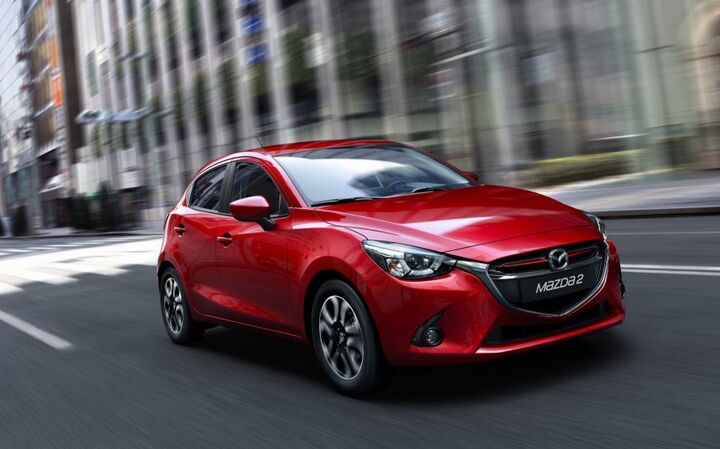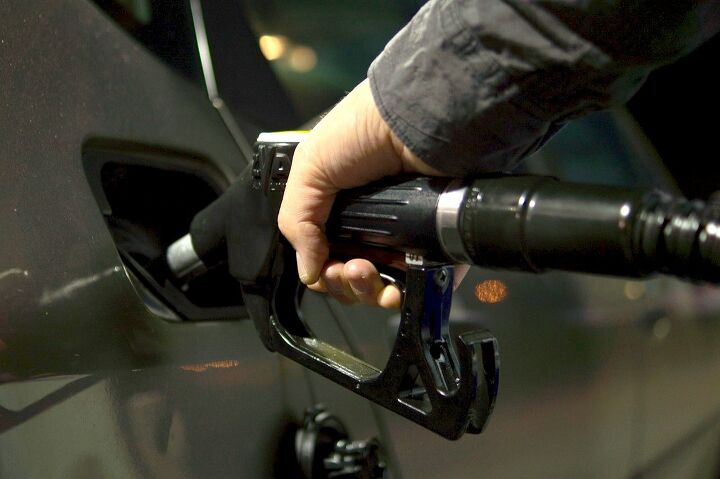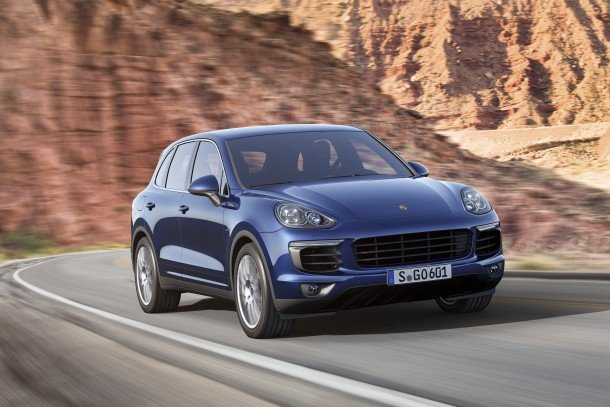#CaliforniaAirResourcesBoard
Replacement EPA Boss on Board With California Gas Confab
Following Andrew Wheeler’s appointment as acting head of the Environmental Protection Agency, he extended an invitation to the California Air Resources Board to discuss emission regulations — a matter which former EPA administrator Scott Pruitt seemed less inclined to discuss with the state.
Mary Nichols, chairman of the board, said Wheeler reached out to state officials and the pair agreed to hold a meeting in Washington. It’s a slight easing of tensions in the cold war between D.C. and Sacramento.
This is a Mess: EPA Begins Quest to End California's Fuel Waiver
The Trump administration has enacted phase two of its plan to revise Obama-era rules designed to cut pollution from vehicle emissions. In a proposal sent to the White House Office of Management and Budget on Thursday, the Environmental Protection Agency announced its intention to rescind the California waiver that separates it from the federal standards the state uses to regulate greenhouse gas emissions from automobiles.
Since allowing California to set its own emission standards would effective split the country’s auto market, the EPA has been clear that its ideal solution would be to cut a deal with the Golden State. Agency head Scott Pruitt previously said California “shouldn’t and can’t dictate [fueling regulations] to the rest of the country,” but acted in a manner that suggested a compromised could be reached.
This was followed by a lawsuit filed by 17 U.S. states, along with the California governor’s office, California attorney general, and the California Air Resources Board (CARB), alleging that the EPA had “acted arbitrarily and capriciously” in its decision to roll back the previous administration’s decision. While the odds are good that the Trump administration wasn’t ever interested in bending to California’s more stringent pollution policies, this was likely the point of no return — squashing any hope for meaningful negotiations.
Automakers to White House: Make a Deal With California on Fuel Economy
Despite pressuring Donald Trump to lower corporate fuel economy mandates since practically day one of his presidency, automakers are now urging caution. The U.S. Transportation Department has drafted a proposal that would freeze vehicle requirements at 2020 levels through 2026, the Environmental Protection Agency’s lead administrator made a public case for rolling back mileage targets, and the White House seems ready to help car companies lower the bar.
Automakers seem to have won, so why the change of heart?
Gas Be Gone: California Working on Bill to Banish Internal Combustion Cars by 2040
California Assemblyman Phil Ting, a Democrat chairing the chamber’s budget committee, says he intends to introduce a bill that would allow the state’s motor vehicle department to register only automobiles that emit no carbon dioxide, such as battery-electric vehicles or hydrogen fuel cell cars.
The proposed legislation would ultimately ban internal combustion engines, mimicking similar actions taken by France and the United Kingdom. Ting claims that, without a plan in place, California’s attempt to dramatically reduce greenhouse emissions by 2050 will prove ineffective.
Accused VW Executive Claims to Have Been 'Misused' by Company
One of the handful of Volkswagen Group executives that have been forced to appear in front of a judge over the company’s widespread emission scandal, Oliver Schmidt, has exclaimed he was misused by his employer after issuing a guilty plea. Unless the charges are revised prior to sentencing, the former VW employee has copped to conspiracy to defraud the federal government and violating the Clean Air Act. A third charge of aiding and abetting wire fraud was rolled into the conspiracy charge.
The admission to corporate wrongdoing was made in August. However the claim that the company had taken advantage of him came later via a letter to U.S. judge Sean Cox.
United States Approves Fix for 38,000 Volkswagen Group 3.0-liter Diesel SUVs
On Monday, the Environmental Protection Agency announced it had approved a fix for the remaining 38,000 Volkswagen Group vehicles equipped with emissions-cheating 3.0-liter diesel engines. That’s potentially very good news for Volkswagen, as it’s a decision that could save the company a truckload of cash.
In May, VW agreed to spend over $1.22 billion to repair or buy back nearly 80,000 vehicles with 3.0-liter engines as part of its “dieselgate” settlement. The manufacturer was also obliged to pay owners of fixed units between $8,500 and $17,000. However, there was an additional fine of $4.04 billion if the EPA and California Air Resources Board were unwilling to approve repairs on all 3.0-liter vehicles.
With a fix now in place for 38,000 Porsche Cayenne, Volkswagen Touareg, and Audi Q7 SUVs, the company may have just saved itself a over a billion dollars.
The Smog State: Vehicle Emissions Still Rising in California, Despite Regulations
Despite aggressive regulatory efforts to counter pollution, California emissions from on-road transportation rose by roughly 4.4 million metric tons of carbon dioxide in 2015 vs one year earlier, according to the San Francisco-based non-profit Next 10. The state also had the dubious honor of housing six of the country’s 10 most polluted cities, based on data from the American Lung Association’s annual “State of the Air” report released last April.
While topography plays a major role (cities located in valleys and basins have a tendency to trap air pollutants), much of the problem has to do with Californians driving more. Let’s face it, gas is cheap and public transit options are typically the less-enjoyable option in all but the most densely packed cities. In fact, the Los Angeles County Metropolitan Transportation has seen declining ridership over the last two years — even though the city has a major issue with traffic.
California Demands VW Build Electric Charging Stations in Poor Neighborhoods
As part of its emissions cheating penance, Volkswagen AG previously agreed to support clean vehicles by injecting a juicy $2 billion into green initiatives in the United States. A whopping $800 million of that sum was reserved for California. On Thursday, state legislators pressed the automaker to spend electric charging infrastructure funds in low-income areas, passing a bill included in a budget package supported by Governor Jerry Brown.
The reasoning behind forcing VW to install more charging stations in disadvantaged communities is twofold. First, and most obviously, is the fact that poorer neighborhoods typically don’t receive the same level of infrastructure advancement as affluent or high traffic areas. In fact, they’re probably the last place the state would bother installing EV charging stations. Secondly, it’s a good way to keep this punishment from becoming a business opportunity.
Criticism arose when rival automakers realized Volkswagen’s charging network could become profitable and give it an early advantage in a competitive new market, especially if it could handpick the sites.
Profit From Punishment? Volkswagen's Preferred Emissions Penance Faces Criticism From State Officials and Automakers
Government officials and automakers are accusing Volkswagen of twisting its emissions-cheating penance to its own advantage. As part of its sentence for equipping over half a million vehicles with defeat devices, the United States is forcing VW to spend billions of dollars on a decade-long program that promotes environmentally friendly transportation and green technologies. The company opted to invest a large part of those compulsory efforts into establishing an EV charging network within the U.S.
However, seven state attorneys generals have urged the Environmental Protection Agency to closely monitor Volkswagen’s course. They contend that such a network would give the company an unfair advantage in the forthcoming electric revolution, allowing VW to profit from its misconduct.
EPA to Approve Diesel Repair for an Additional 84,000 Volkswagens: Report
The Environmental Protection Agency and California Air Resources Board will soon announce an approved fix for roughly 84,000 recalled Volkswagen diesels. As part of VW’s buyback program of cars equipped with emissions-cheating defeat devices, the soon-to-be-certified modification allows 2012-2014 Passat TDIs to operate within acceptable pollution guidelines.
Volkswagen has already designed fixes for the Generation 3 diesel 2.0-liter engines, providing vehicle owners the choice to keep and repair their car, or to have it bought back. Similar fixes in Europe have yielded complaints of reduced fuel economy, starting difficulties, trimmed power, weak acceleration, and even abnormal sounds. As usual, if you want to hold onto your TDI, you may be doing so at your own risk.
Mazda Keeps Certifying the Mazda 2 With CARB, But Why?
It was January of 2015 and I was standing in a small venue in Montreal. The space was dark save some access lighting and red spotlights pointed at a sheet-covered car.
A few moments later, the sheet was pulled off, and Mazda Canada announced the 2016 Mazda 2 would be coming to The Great White North.
Eleven months later, Mazda Canada would reverse that decision, citing other all-new products — namely the CX-3 and MX-5 — requiring Mazda’s full attention. After all, the small automaker didn’t want to spread itself too thin, and it wasn’t like the previous-generation Mazda 2 set the sales charts on fire — on either side of the border.
In America, Mazda North America Operations had zero intention of selling the subcompact in any region other than Puerto Rico. Yet, year after year since the model went on sale in other global markets, Mazda continues to certify the Mazda 2’s emissions system with the California Air Resources Board, effectively making it eligible for retail sale in any of the 13 “CARB states” and District of Columbia.
Meanwhile, Mazda says it still has no intention to sell the Mazda 2 in America. What’s going on? We reached out to Mazda to get an answer.
California Maintains Obama-era Emissions Rules in Affront to Trump's EPA
California has green-lit light-vehicle pollution targets that the Trump administration has placed under review. As expected, t he Golden State is going to continue playing hardball over Environmental Protection Agency regulations.
Already critical of the automotive industry for asking the president to reconsider federal guidelines through 2025, the California Air Resources Board hinted that it wouldn’t stray from the emission targets set by the Obama administration in 2012. On Friday, CARB finalized its state emissions rules while setting an updated ordinance on zero-emission vehicles. “We’re going to press on,” said Mary Nichols, head of the board, during last week’s press conference.
California Regulator Responds to Volkswagen's 3.0-Liter Diesel Fix With a Resounding 'Nope'
California’s Air Resources Board wants nothing to do with Volkswagen’s proposed fix for its 3.0-liter VW, Audi and Porsche TDI models equipped with emissions-cheating defeat devices.
The regulator rejected the automaker’s plan yesterday, and later issued a release calling it “incomplete and deficient in a number of areas.” For Volkswagen, CARB’s rejection is a major setback to its goal of settling the rest of its diesel emissions scandal fallout without another expensive buyback program.
Volkswagen Might Pay Every U.S. Diesel Owner $5,000 to Avoid a Trial
On the eve of a key U.S. deadline for a diesel emissions fix, Volkswagen has reportedly agreed to pay all American owners of afflicted TDI models $5,000 each.
The deal, reported by Germany’s Die Welt newspaper, would allow the automaker to avoid going to trial this summer, according to Automotive News.
Volkswagen was facing an April 21 deadline to outline a comprehensive fix for the 580,000 U.S. diesel models equipped with “ defeat devices” designed to sidestep emissions regulations. The deadline was set in March by a U.S. District Court judge.
Volkswagen Prepares Its Pollution Penance
After its excessively dirty diesels polluted the nation’s air for years, Volkswagen is on the verge of making environmental reparations in the U.S. and state of California, Bloomberg reports.
The automaker is reportedly in talks with U.S authorities to create two remediation funds aimed at offsetting some of the environmental (and possibly legal) damage resulting from the diesel emissions scandal.



























Recent Comments